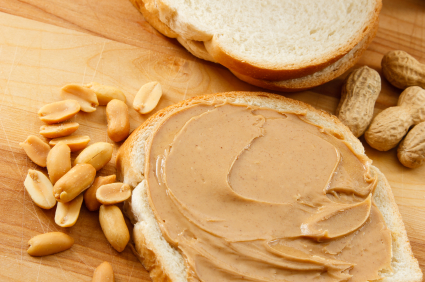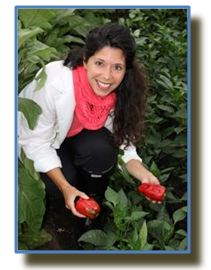October is Sports Nutrition Month at MomsTEAM. We invited some old friends and some new ones to share their wisdom about nutrition and offer always on-the-go sports parents fresh ideas and choices for healthy, easy-to-make breakfasts, lunches, dinners and between-meal snacks for your active children.
Today we hear from Lisa McDowell, sports dietitian for the U.S. Olympic Team at the recent London Games and for the Detroit Red Wings:

MomsTEAM:What are your top five foods for sports nutrition?
McDowell:
- Greens - for their natural nitric oxide which helps fuel performance by lowering blood pressure, meaning an athlete uses less oxygen while exercising.
- Cherries - for anthocyanins and melatonin which helps by reducing muscle soreness, enhancing recovery and assisting with sleeping.
- Salmon - for great Omega-3-fatty acids which helps with anti-inflammation and improving the oxidation response.
- Oatmeal - awesome complex carbohydrates for stable blood sugars which help by allowing the body to use fat for fuel and not tapping glycogen stores too soon. This is particularly helpful for longer-endurance events.
- Dark chocolate - significant phytochemicals for help preventing free-radical damage, or muscle damage, during exercise. Besides, who doesn't love an ounce a day of dark chocolate?
I would also include eggs, chocolate milk, sweet potatoes, berries and tea on my list because I can't stop at just five!
MomsTEAM: Do you think youth and high school athletes need supplements? If yes, which ones?
McDowell: I am not a fan of supplementing high school athletes' diets with manufactured or engineered ‘nutrition supplements.' I think there is way too much we don't know about these products. For every claim out there by the marketers of these products, as clinicians we see studies that show harm with supplements. In addition, of the supplements available for purchase, more than a quarter of them are illegally labeled or don't contain what is listed. I recommend to my Olympic, professional and college athletes that they start with the basics - good hydration and sleep, and not skipping meals. They can find the nutrition they need to perform at an extremely high level through natural products. There is no need for them to look for lighiting in a bottle or a pill.
MomsTEAM: What is the best snack to pack in a sports-active kid's school backpack or gym bag?
McDowell: I love all-natural peanut butter or almond butter and natural, no-sugar-added jelly sandwiches because they are shelf-stable and easy to consume when the athletes are pressed for time.
 I also pack a custom blend of nuts that combine some of my kids' favorites (roasted walnuts with spices, no-sugar-added dried cherries, one ounce of dark chocolate, dark cocoa almonds, and pistachios). I also make this mix for the Detroit Red Wings to replace some of their snack foods, like potato chips for example, that were previously available on their airplane. If we are striving for 90% of our calories to be excellent fuel and 10% to be less desirable, then I need the airplane and backpack snacks to be counted toward the 90%. The response has been tremendous and the Red Wings look forward to grabbing a bag as they exit the plane.
I also pack a custom blend of nuts that combine some of my kids' favorites (roasted walnuts with spices, no-sugar-added dried cherries, one ounce of dark chocolate, dark cocoa almonds, and pistachios). I also make this mix for the Detroit Red Wings to replace some of their snack foods, like potato chips for example, that were previously available on their airplane. If we are striving for 90% of our calories to be excellent fuel and 10% to be less desirable, then I need the airplane and backpack snacks to be counted toward the 90%. The response has been tremendous and the Red Wings look forward to grabbing a bag as they exit the plane.
MomsTEAM: What is a quick and easy dinner to make for a family meal after an afternoon practice or game?
McDowell:
Here are two are my favorites:
- Wild Alaskan Salmon, edamame, sweet potatoes, black rice, and raspberries; and
- Spaghetti squash with mushrooms, spinach, peppers, onions, garlic, zucchini, and tomatoes. It has so many colors with great phytochemicals and micronutrients (again, which are essential for fueling performance).
MomsTEAM: What is the most important thing about nutrition that every sports parent should know? Any tips?
McDowell: Recently, I gave a talk to my son's high school (Detroit Catholic Central) hockey teams and I was astounded by the number of boys who skip breakfast. I have their coaches telling me the boys are showing up to training under-fueled, and, after talking with the boys, I couldn't believe how prevalent their erratic eating habits actually were! Here we have parents paying for extra training and conditioning and the kids aren't eating breakfast. In addition, most of them were sleeping less than eight hours a night. They didn't understand the urgency of maintaining a schedule of meals and snacks for proper fueling and recovery, the necessity of adequate hydration before, during and after training and competition, and the importance of proper rest and sleep. These are the pillars of successful training.
MomsTEAM: How have you helped a young athlete?
McDowell:I have helped dozens of young athletes get off dangerous combinations of supplements. Of course, there may be athletes with Vitamin D deficiencies (I live in Michigan where sunshine, the best way to replenish your Vitamin D stores, is at a premium), so correcting deficiencies is imperative to performance. However, most high school athletes are not going to benefit from creatine, central nervous stimulants, and hormones. They need someone to take the time to explain the reason behind proper fueling. I always tell them to eat with a purpose so they are fueling to perform - not just eating to eat. When they have this mindset, their cafeteria choices improve. Especially on game day!

Lisa McDowell, MS, RD, CNSD, CSSD is a board certified specialist in sports dietetics and has worked with Olympic athletes since 1996. Most recently, Lisa worked with Team USA athletes at the Summer Olympic Games in London. She has a passion for fresh, functional food and enjoys sharing her knowledge with athletes to improve performance. She also is the team nutritionist for the Detroit Red Wings and consults to other professional athletes in Detroit. Her background includes extensive experience with understanding the supplement industry. Lisa applies the science behind sports nutrition and translates rigorous scientific research to food and meal suggestions instead of prescribing supplements. In addition to her work in sports nutrition, Lisa maintains her clinical expertise as the chief of nutrition at St. Joseph Mercy Health System in Ann Arbor, Michigan. In April 2010, she helped start a 15-acre organic farm on the hospital campus to help improve the food served to patients and employees. Her efforts were recognized by Crain's Detroit and she was named a Health Care Hero for her work to fight obesity and improve access to fresh food. Lisa has been interviewed by Food Sleuth radio on KOPN and her interview can be downloaded from iTunes. Lisa received the national clinical engagement award and was recognized as the Michigan Dietitian of the year. You can read Lisa's blog and follow her on Twitter @LisaMcDowellRD.



















